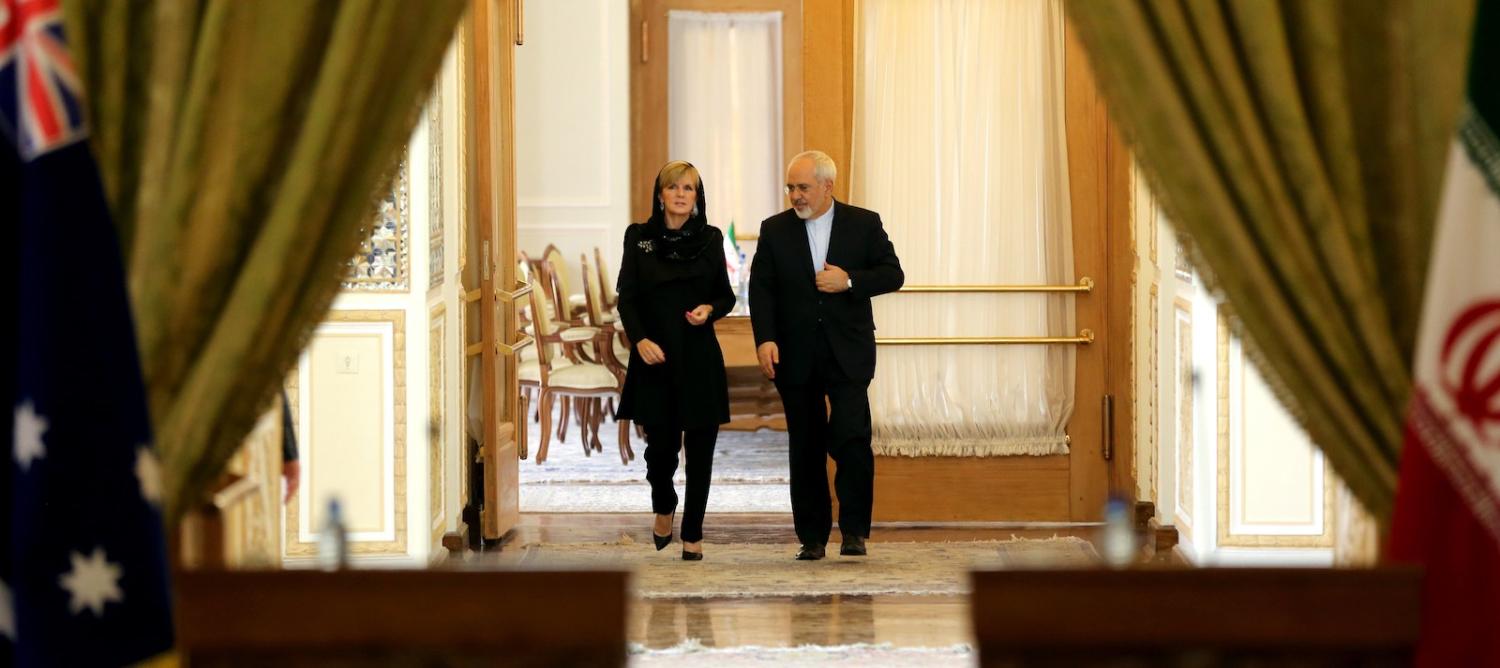In October, when Australian Prime Minister Scott Morrison floated a change to Australia’s position on Jerusalem, he also flagged a review of Australia's diplomatic support for the Iran nuclear deal. Daniel Flitton:
This record and ambition is a lot to surrender, and for what benefit? Australia has preserved an independence of action on a significant international challenge to date, but can this be maintained should Australia join with Trump in his belief it was a ‘bad deal’? What signal will such a move send about Australia’s approach to diplomacy?
Huawei Chief Financial Officer Meng Wanzhou was arrested in Canada, and in an allegedly retaliatory move, former Canadian diplomat Michael Kovrig was arrested in China, leaving the two countries in an awkward diplomatic standoff. Kim Richard Nossal:
As Guy Saint-Jacques, Canada’s ambassador to Beijing from 2012 to 2016, put it crisply: in China, there are no coincidences. He, like most other informed commentators, sees the two arrests as tightly linked.
Elliott Zaagman argues that the assertiveness of Chinese diplomats is hurting Beijing’s interests:
While China’s nationalistic ‘tantrum diplomacy’ may make headlines and damage China’s image abroad, it may simply be trying to do too much too quickly, and causing problems for itself in the process.
Meanwhile, the man at the centre of the Chinese political system, President Xi Jinping, has his work cut out to respond to the economic policies of the United States. Kerry Brown:
The Beijing leadership seemed dazed and slow in their response, with indications for the first time that there was only a small huddle of people around Xi running the country and that it was dependent on the quality of their advice over how his administration handled matters.
Across the South China Sea, the Philippines’ Rodrigo Duterte’s harsh words for the Catholic Church have not dented his approval ratings. Malcolm Cook:
The Catholic Church in the Philippines is less politically important than the conventional wisdom based on the role of the church in the overthrow of the Marcos dictatorship suggests. Presidents can take the Church on directly at little cost and possibly even some political benefit.
In India, with elections looming, politics are being infused with messaging on inter-religious relations. Pravin Prakash and Juhi Ahuja:
The Bharatiya Janata Party, the ruling party in India and the political leadership of the Hindu Right movement in India, fought the 2014 general elections on the twin platforms of faith and development, manifested through the personality cult surrounding Prime Minister Narendra Modi. In the face of greater pressure due to the failure of its development agenda, the BJP seems set to fight the 2019 elections by rallying its factions and allies to assert the Hindutva agenda and further politicising Hindu-Muslim relations.
Aarti Betigeri on the Varghese Report, and how Australia should deepen ties with India:
A case study in an effective and powerful bilateral relationship, one that Australia would love to emulate, is that between India and Japan. The problem is, of course, that Australian pockets are not as deep as those of Tokyo’s, so a bit more nuance and good design is needed.
Changing pace, Simon Frankel Pratt writes about the evolution of technology and norms relating to the use of drones for “targeted killings” by the United States.
The CIA’s view of the use of lethal force changed. Assassination was still regarded as forbidden political violence, but what used to be called assassination was now defined as something else, and considered a legitimate combat operation.
Finally, Australia’s new encryption laws have started arguments between technology companies and the government over national security and privacy. Dirk van Graver:
the real intent of the Bill is to formalise a system of engagement and cooperation with communication service providers who, in some instances, have proved unwilling to provide lawful and non-arbitrary access to information for the purpose of criminal investigations. Companies like Google and Facebook have built their businesses on the disclosure of their users’ data: they aggregate and sell it to the highest bidder. The hypocrisy is glaring.
